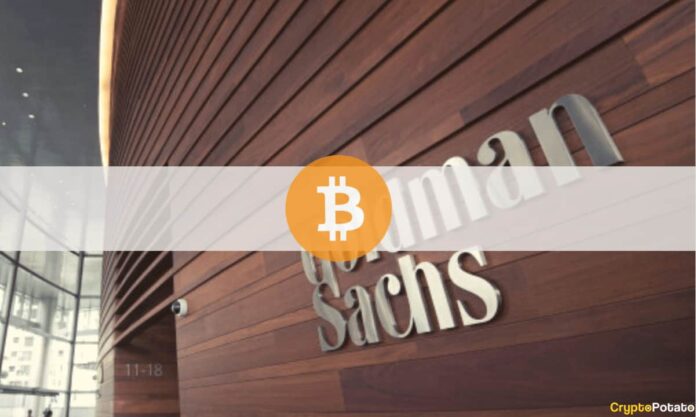John Haar – a former member of Goldman Sachs’ Asset Management division – published an article detailing what he perceived were commonly held views about Bitcoin, sound money, and economics on Wall Street.
He listed multiple reasons for which members of traditional finance either object to or fail to appreciate Bitcoin’s potential as global money.
Ignorance of Economic History
As explained in a blog post for Swan on Monday, Haar said that “virtually no one” has spent time understanding the history or fundamentals of money. For example, they do not grasp the characteristics that made gold historically dominant money: durability, divisibility, recognizability, portability, and scarcity.
By extension, this impairs Wall Street’s understanding of Bitcoin – which is often referred to as “digital gold” for possessing these qualities even more strongly.
Haar boils the lack of understanding down to education:
“To the extent that those working in traditional finance have any opinions about the history or fundamentals of money, it’s almost entirely shaped by Keynesian economics,” he said, “and perhaps by MMT in more recent years.”
Keynesian economic theory and modern-monetary theory both advocate for centralized control of a nation’s money supply to manage the economy.
Bitcoin, by contrast, resembles a grassroots commodity money with an absolutely fixed supply that nobody can change. In fact, central bankers like Ben Bernanke and Christine Lagarde have a history of speaking poorly about the asset.
Despite their purported ignorance, Wall Street investors were likely to “pretend” to be well-versed on Bitcoin and other financial topics. As such, they’d often take strong positions against Bitcoin that “simply repeat the objections they have heard in the mainstream media.”
Closed Mindedness and Lack of Perspective
Haar also described Wall Street types as “high performing consensus followers,” unlikely to be early adopters of new technologies. “They are the people who generally followed the rules throughout their lives… and they generally trust authority and alleged experts,” he said.
Furthermore, the legacy finance worldview is generally contained in developed countries with relatively stable currencies and secure property rights. Under such circumstances, the necessity of Bitcoin is less apparent than for citizens of Argentina, Turkey, Venezuela, Nigeria, and the like, where Bitcoin adoption happens to be quite high.
Haar concludes that most people in legacy finance that oppose Bitcoin have not arrived at their position through deep research or understanding.
For the few who understand monetary history, he suspects they may be people with senior roles with a financial incentive to speak critically of the asset. Theoretically, Bitcoin could allow people to store their wealth without “investing” their money, meaning less business for investment firms.
“They would prefer the world’s capital to be forced into investments, which their companies just so happen to provide access to and earn juicy fees on,” said Haar.
Binance Free $100 (Exclusive): Use this link to register and receive $100 free and 10% off fees on Binance Futures first month (terms).
PrimeXBT Special Offer: Use this link to register & enter POTATO50 code to receive up to $7,000 on your deposits.
Credit: Source link






















 Bitcoin
Bitcoin  Ethereum
Ethereum  XRP
XRP  Tether
Tether  Solana
Solana  Dogecoin
Dogecoin  USDC
USDC  Cardano
Cardano  Lido Staked Ether
Lido Staked Ether  TRON
TRON  Chainlink
Chainlink  Avalanche
Avalanche  Sui
Sui  Wrapped stETH
Wrapped stETH  Wrapped Bitcoin
Wrapped Bitcoin  Stellar
Stellar  Toncoin
Toncoin  Hedera
Hedera  Shiba Inu
Shiba Inu  WETH
WETH  Polkadot
Polkadot  LEO Token
LEO Token  Bitcoin Cash
Bitcoin Cash  Hyperliquid
Hyperliquid  Litecoin
Litecoin  Bitget Token
Bitget Token  Official Trump
Official Trump  Uniswap
Uniswap  Pepe
Pepe  Wrapped eETH
Wrapped eETH  USDS
USDS  NEAR Protocol
NEAR Protocol  Ethena USDe
Ethena USDe  Aave
Aave  Aptos
Aptos  Internet Computer
Internet Computer  Ondo
Ondo  WhiteBIT Coin
WhiteBIT Coin  Ethereum Classic
Ethereum Classic  Monero
Monero  Cronos
Cronos  Mantle
Mantle  POL (ex-MATIC)
POL (ex-MATIC)  Render
Render  Dai
Dai  Bittensor
Bittensor  Algorand
Algorand  OKB
OKB 
